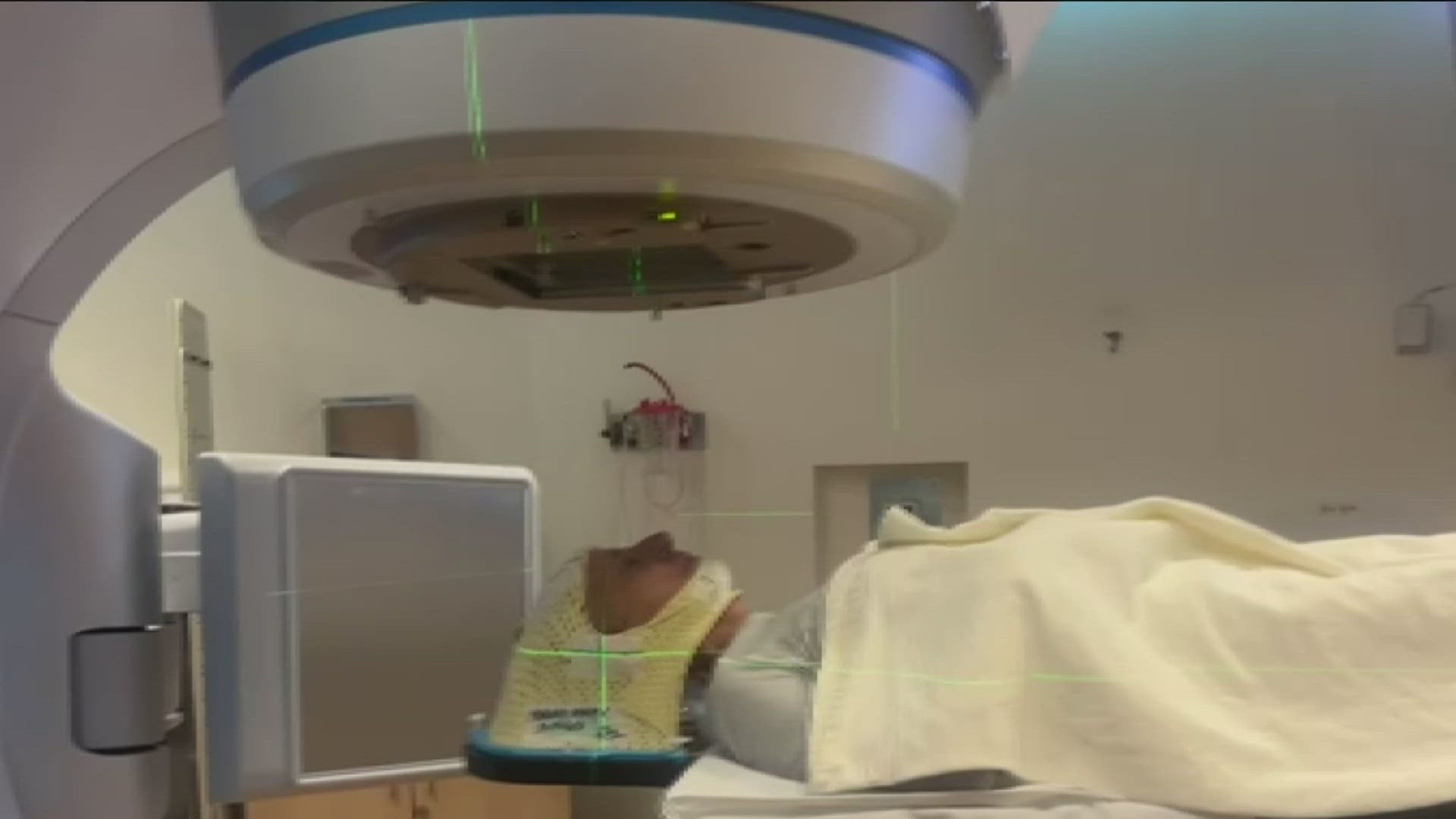TOLEDO, Ohio — The chance of a person developing a malignant tumor of the brain or spinal cord in their lifetime is less than 1%, according to the American Cancer Society.
The ACS says there were about 25,400 of these diagnoses in 2023. It would be even higher if benign tumors were included.
While the chances of developing brain cancer are very low, Mary Arend said she is ready to fight every step of the way and warn others about potential signs and symptoms to look out for.
Mary has been married to her husband, Dan Arend, for more than 36 years. He got emotional talking about how his wife has changed since her diagnosis in 2023 and how it all makes sense now.
"Cancer doesn't care who it attacks., who it goes after," Dan said.
Mary was having flu symptoms in June 2023 and went to urgent care thinking she had an illness. The couple noticed Mary's sporadic symptoms and thought she may need treatment.
"The toxins caused her to get nauseous and then it would go away. She would have headaches now and then, but very seldom. I would tell her something and go, 'Mary I just told you that five minutes ago,'" Dan said.
"Was that two years ago?" Mary asked her husband.
"One year ago," he said. "I'm going, 'why can't you remember?' Well, this was on her right side, which affected short-term memory."
A tumor the size of an orange was pushing on Mary's brain, shifting it more than a half-centimeter in her skull. Doctors discovered it during a CT scan and immediately rushed her to the hospital and scheduled surgery, removing the tumor and giving her 55 stitches. The tumor was discovered to be cancerous and Mary was diagnosed with Stage 4 Glioblastoma and began treatment in August 2023.
Dr. Kevin Reinard, a neurosurgeon at the ProMedica Neurosciences Center, said there are currently no definitive hereditary markers to signal brain cancer risks yet. But there are two ways brain cancers develop.
"You can either have a genetic mutation that results in a cancer immediately or you can have a low-grade tumor that then advances," Reinard said.
The ACS lists general symptoms like headache, nausea and balance problems as warning signs.
"There's no single genetic mutation has been identified that links or correlates very strongly with these types of tumors and that's the reason why it's very difficult to diagnose," Reinard said.
Both the doctor and Dan noted Mary's dedication to fitness and a healthy lifestyle helped further her radiation and chemo treatments.
"She the healthiest 60-year-old woman I've ever seen in my life," Dan said.
"Am I 60?" Mary asked.
"You were 60 when this happened. You're 61 now," Dan said.
Mary and Dan are aware of how hard it is to spot symptoms and urge everyone to keep on top of their health. Mary's advice to everyone is a short but important list, she said.
"Positive attitude, have a support system," Mary said. "If something doesn't seem right, listen to your doctor and make an appointment. I was bad at that. I will say, because I thought nothing, oh no one's gonna stop me. I never get sick."
While cancer has slowed Mary down, it hasn't stopped her from being the woman Dan has known for over three decades. She said with the help of her friends and family, she's staying strong.

